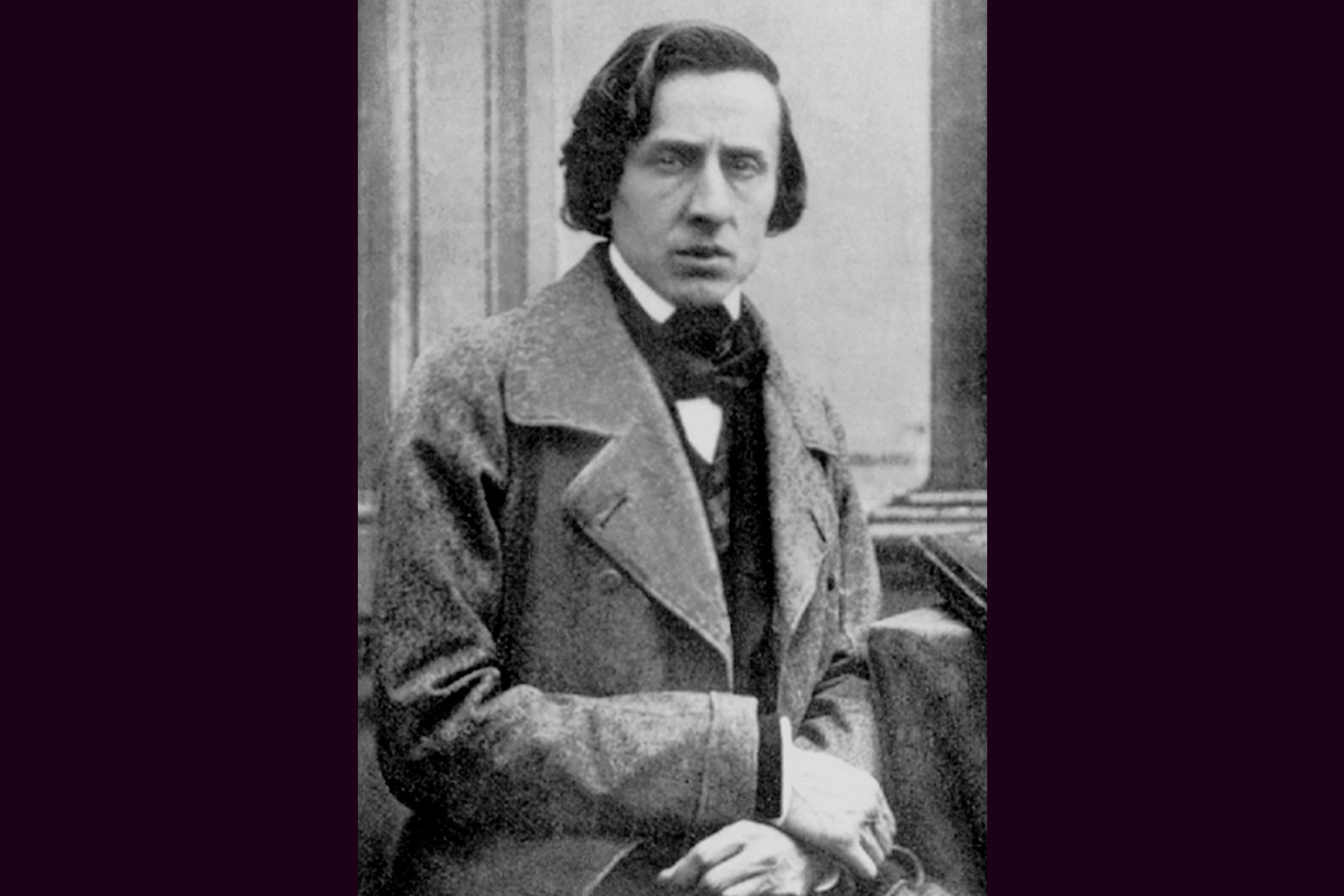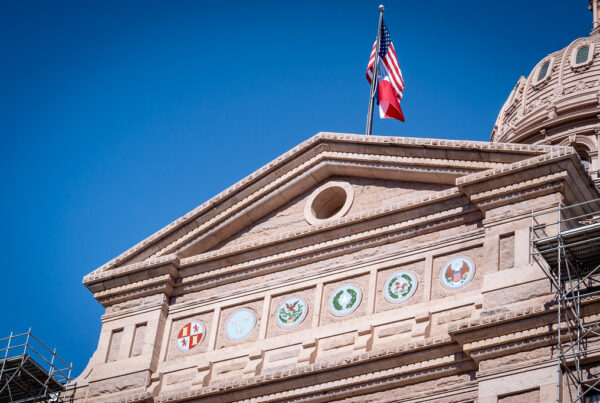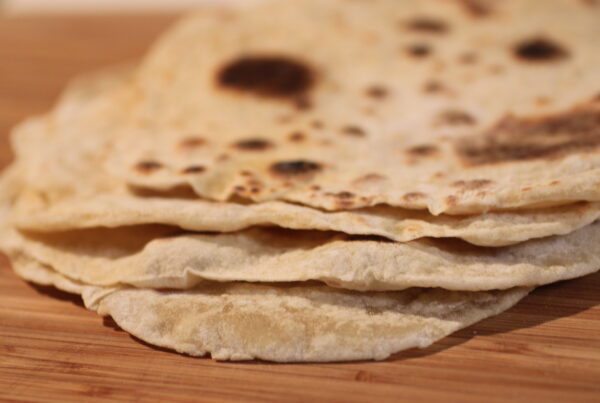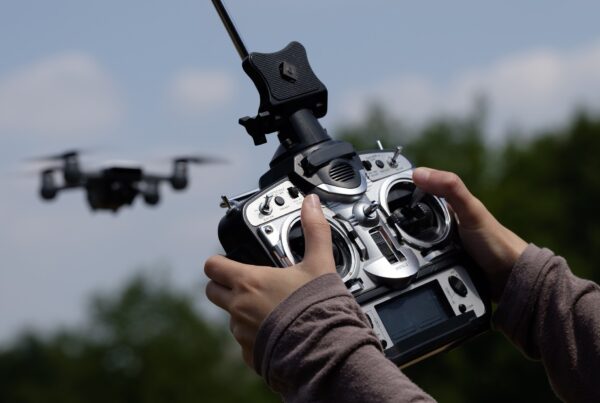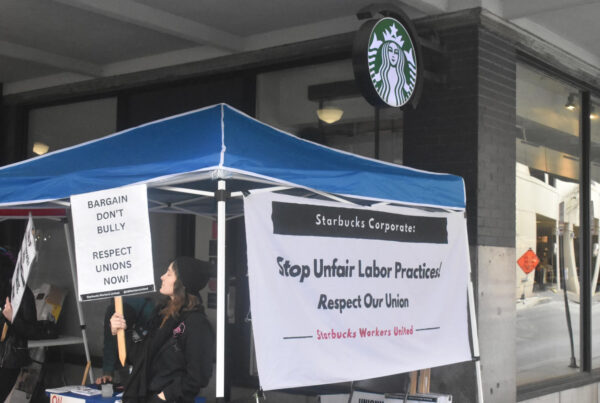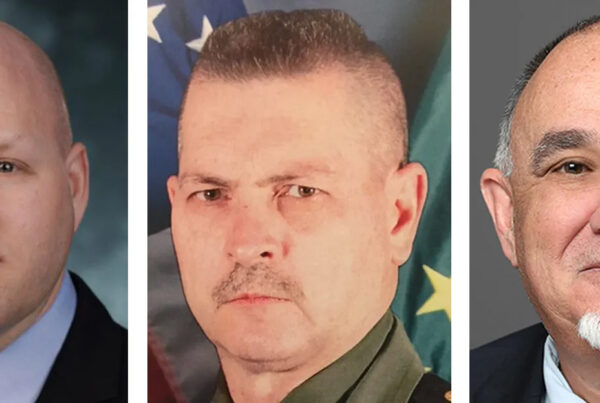For many lovers of the piano, there’s no one quite like Frederic Chopin. The music of the Polish composer, born in 1810, is still being celebrated to this day – including in a new festival in El Paso this weekend
Oscar Macchioni, professor of piano at the University of Texas at El Paso, has organized the inaugural Borderland Chopin Festival. He joined the Texas Standard to share what attendees can expect from the festival, which is free and open to the public, as well as what he’s got planned for the future. Listen to the interview above or read the transcript below.
This transcript has been edited lightly for clarity:
Texas Standard: Tell me a little bit about what’s so special about Chopin.
Oscar Macchioni: Well, Chopin was probably the only composer that composed exclusively for the piano. He lived only a short time, but he dedicated his life composing to the piano. And, in fact, you know, many people consider him a poet of the piano.
What inspired you to organize this Borderland festival in his honor?
Well, being a pianist, of course, I think every pianist should play Chopin. And I believe every pianist is in love with Chopin. But I studied in Poland about 30 years ago, and that’s when I got more in-depth study of his music. And we used to have a Chopin festival here in El Paso. Unfortunately, the organizer died a couple of years ago, and I don’t see that that is going to continue. So I decided to start my own Chopin festival here at UTEP.
Talk to me about the idea for the festival, because you are making it very much your own, and a big piece of this is community engagement. Why, and what do you have planned?
I do believe that we all have to engage with the community, especially with the underserved community. Since I came to El Paso 20 years ago, I have been planning yearly concerts, outreach concerts, in community centers, libraries, detention center for minors. You know, I believe that if you can bring joy to those people for one hour of their lives, I feel very happy with that. And they always said, well, come back, come back, play more, play more. And so when I was planning this festival, I not only wanted to bring great artists here to El Paso, but I also want them to go out into the community and interact with our community.
So we have a great artist coming from New York. She’s a Polish pianist, Magdalena Baczewska, and she teaches at Columbia University. She will be performing a recital, giving master class to the students at UTEP and to the students from the community, from the local piano teachers – but she’s also going to be visiting the Parkland High School on Friday morning and talking to the students who take music there and playing for them.
Another goal, I understand, is to highlight composers who are not as well-known: women, composers from Latin America. Give us a few examples, and tell us more about why you want to do this.
Well, one of the things that I requested to the artists is that they will play 50% of the program, minimum 50% will be music by Chopin and the rest needed to be free. They could choose any composer but at least one composition by an unrepresented composer. And in this case, Magdalena Baczewska, she’s playing, of course, Chopin – many pieces, many, many famous pieces by Chopin – but she’s also playing Margaret Bond, which is a female composer. She’s playing Florence Price, which is an African-American female composer, and a piece by Thomas “Blind Tom” Wiggins, which was a very early 19th century African-American blind composer and pianist.
How did you fall in love with the piano – and, of course, Chopin? You mentioned you went to Poland, but you’re originally from Argentina.
Yes, I’m originally from Argentina. Interesting – in Argentina, when I was a teenager in 1970s-80s, there was an Argentinean soap opera, and the main theme was Chopin’s Second Piano Concerto, the slow movement. So you can imagine that every day at a certain time of the day, your mother would be watching that soap opera and you will hear that music, you know, with the credits at the beginning and at the end every single day of the week for years.
So I think that that was probably my first introduction to Chopin, although, you know, I studied piano since I was a kid, but probably I fell in love with him when I was hearing that background music for the TV show and then, of course, as a pianist. We all play a lot of Chopin, because what I said before, he composed exclusively for the piano. And then I had the opportunity to go to Poland with a scholarship from the Polish government to study for two years at the Academy of Music in Krakow. So then I furthered my studies in Chopin, and I learned other Polish composers like Karol Szymanowski, which I also adore. And I play a lot of his music, too.
This is the first year for you to have organized this, but you have big plans, including an international piano competition. Tell me about that.
Yes. So this year was more local. And we do have a piano competition, actually: We had 34 kids from elementary school to college level that entered this competition this year. And they were mainly from El Paso, Ciudad Juárez, and even from Chihuahua. So this was the small one; this was the more local one. But we have a donor and a very good friend of mine who also knows what I’m doing with this Chopin competition. And he decided that they would support this. So we got $1,000,000, – $100,000 per year for 10 years – to expand this into an international festival and competition.
So every other year is going to be this local one, which besides doing the local competition and bringing artists to play, we are going to donate pianos to the community. And the donations are going to go to community centers, to libraries, to schools that don’t have a piano, again to the detention centers that I played before. So we are going to leave something in the community so those places can use the piano for bringing artists to play or for teaching music lessons to the kids.
Every other year is going to be this big international piano competition I’m hoping will bring the best of the best, those names in the international arena, names that we don’t get very often here in El Paso. But if you go to L.A., to San Francisco, New York, Houston, Dallas, they go there every month. I mean, you get great names, great artists every month. So with this type of budget, I will be able to bring that type of performers here to El Paso and also to create an international piano competition that will attract people from all over the world to come here and compete, probably for a week; it will be a weeklong festival and competition here in El Paso.


